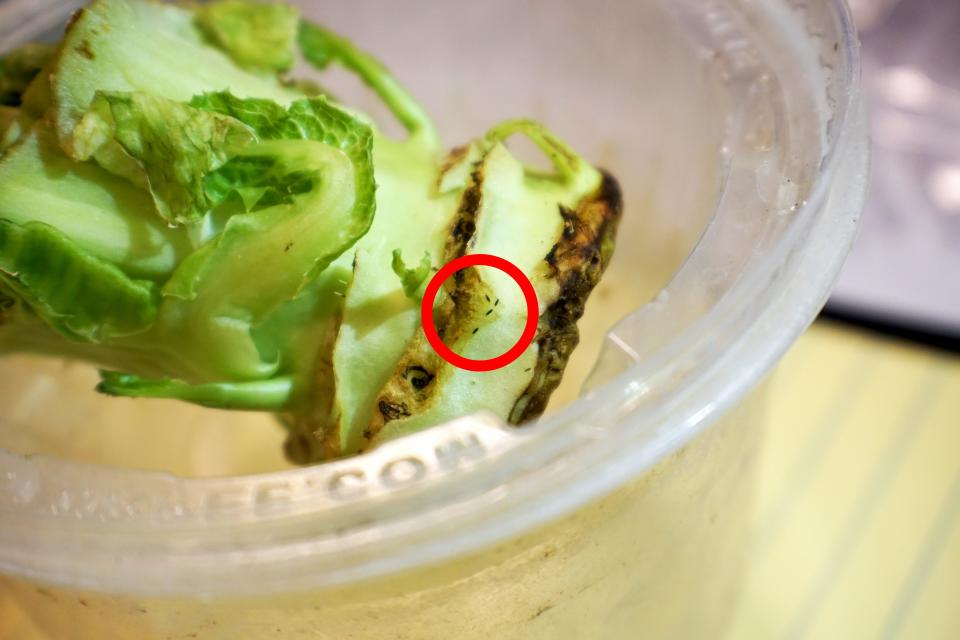These mosquitoes 'prefer to bite people.' Meet the invasive insect ravaging the West Coast
Horror movies like "Jaws" "Anaconda" and "The Birds" became cult classics with the ability to show how scary animals can be when around humans. And while those larger animals can stir fear in the real world, there are plenty of tiny creatures to also generate nightmares.
Meet the invasive Aedes mosquito, an insect that really wants to bite you.
Originally from Asia, the Aedes mosquito is thought to have made its way to California from a shipment of bamboo from China in 2001, according to the Los Angeles Times. Now, the population of the mosquito has grown so rapidly that numerous counties in the state are trying to control the population rather than eradicate it.
But what makes these mosquitoes so much more terrifying than others? Their preference for biting humans.
Levy Sun, director of communications for the San Gabriel Valley Mosquito & Vector Control District, said most mosquitoes prefer to feed on birds, but with Aedes mosquitoes, it's a whole difference interest.
"With these Aedes mosquitoes, they don't care about birds or other mammals, they prefer to bite people," Sun told USA TODAY. "They'll continuously try and bite you over the course of a few minutes to get a full blood meal. So when you get five bites in your legs, it could very well be from just one Aedes mosquito."

The differences from other mosquitoes don't end there either. Aedes mosquitoes tend to be more aggressive, bite during the day and can live outdoors and indoors. They also tend to be more active during the fall, unlike other mosquitoes, which typically stop activity by October.
Luz Maria Robles, public information officer for the Sacramento-Yolo Mosquito & Vector Control District, said they even found these mosquitoes living in May this year.
"We just didn't realize that we were gonna find them so early," she said. "The season for this mosquito is kind of extending."
Another big danger of Aedes mosquitoes: viruses. West Nile virus is the most known virus mosquitoes can carry, but these critters can carry a lot more, such as Zika, yellow fever, dengue and chikungunya, among others. According to Sun's agency, the mosquitoes were responsible for Zika outbreaks in Florida, Texas, Hawaii and Puerto Rico.
More: Mosquitoes test positive for potentially deadly EEE virus in Connecticut
Fact check: No, vitamin B1 supplements do not repel mosquitoes
So far, the mosquitoes have been found in 310 cities across 22 counties in California, according to state data, as well as in Utah. Data from the Centers for Disease Control and Prevention in 2017 estimated the mosquitoes were present in nearly all southwest and southeast states.
Robles said what makes it so hard to contain the mosquitoes is how they breed. Typically, mosquitoes lay their eggs in large bodies of standing water, whereas Aedes eggs "look like a very small speck of dirt," and the insects can lay them in a bottle cap of water and on things such as toys, buckets and plants.
"The eggs can survive in the dry form for many months, so that's also very difficult," she said.

Sun added another reason Aedes mosquitoes have thrived is that they have "taken advantage" of people creating conditions for them to survive. They don't fly far, meaning they usually go from yard to yard.
"These mosquitoes come from tropical climates, and by us here in Southern California creating microclimates in our yard, we allow these mosquitoes to thrive," he said. "You primarily find them in urban environments in cities."
One way to get rid of the mosquitoes is to have more native plants and vegetation in your area and get rid of all stagnant water — even in drink containers as well as communicating with neighbors about doing the same thing.
"You definitely have to do your part as a resident," Robles said.
Sun added doing those things is a much better solution than just using pesticides.
"Compared to the native mosquitoes here, they can actually be more resistant to a lot of the pesticides we put out in our yard," he said. "Our fear is that the resistance will be built up enough where it's not as effective."
As for protecting your body, repellent is the best way to go, as well as covering up the body as much as possible, Luz and Sun said. The mosquitoes are black with distinctive white stripes, and if they are spotted, people are urged to call their local mosquito and vector control department.
Follow Jordan Mendoza on Twitter: @jordan_mendoza5.
This article originally appeared on USA TODAY: Mosquito that prefers biting people thriving in California

